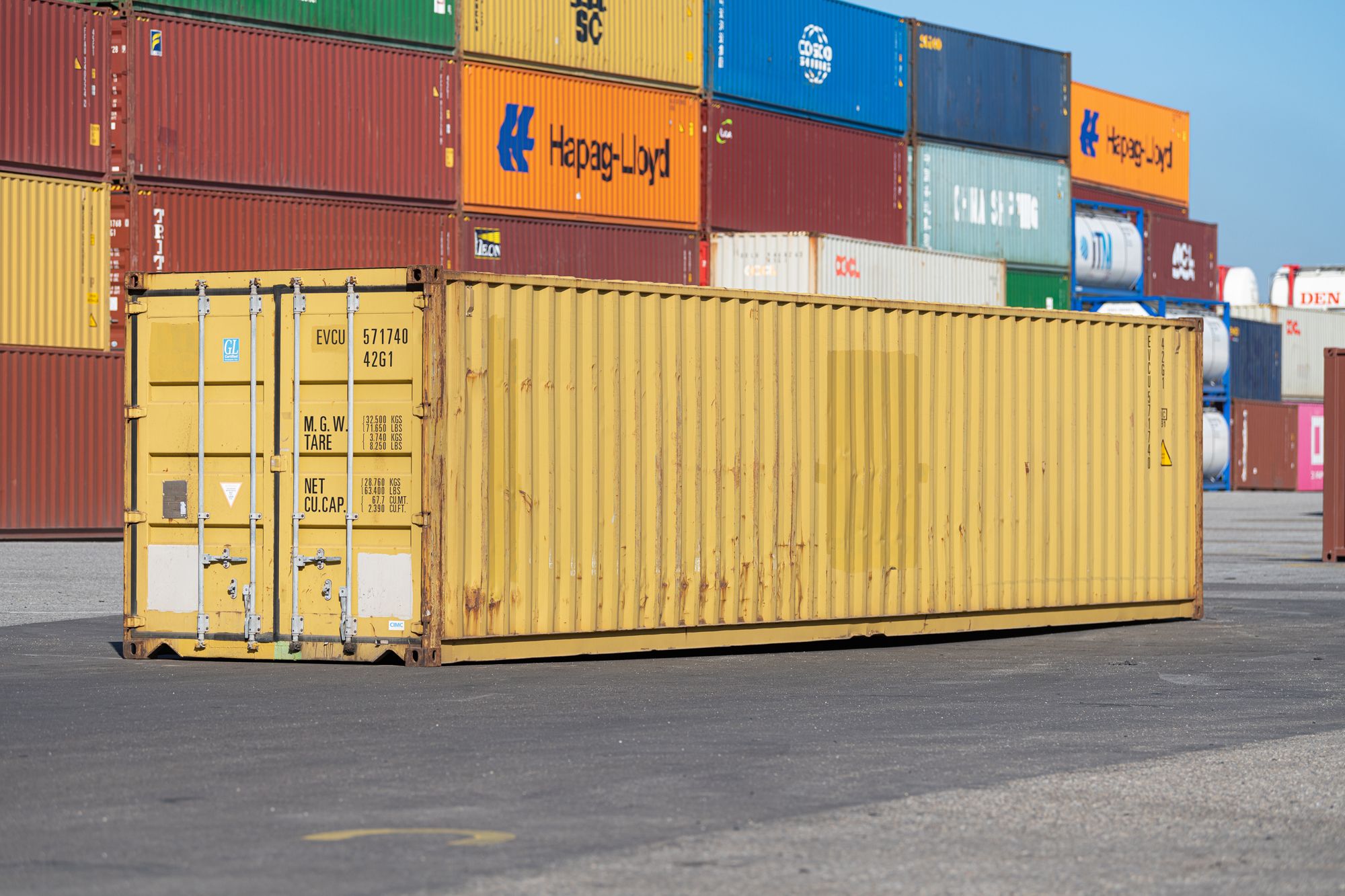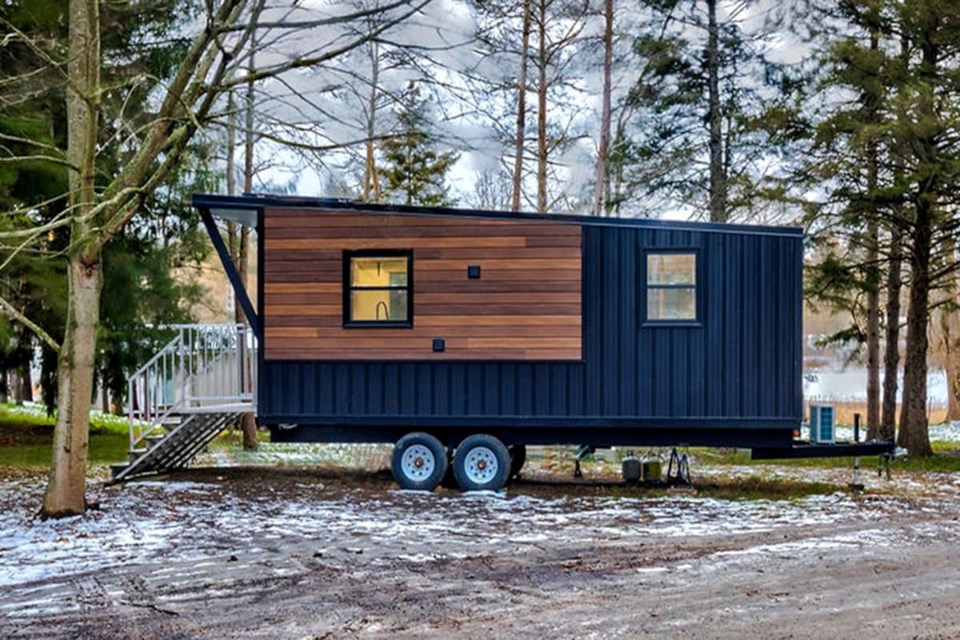Everything You Required to Understand About Shipping Containers and Their Practical Applications
Shipping containers have actually evolved from mere tools for transport to functional frameworks with countless practical applications. Their durable style and typical sizing make them ideal for an array of usages beyond delivery. From cutting-edge housing solutions to lasting farming, their adaptability is significant. The possibilities do not end there. Discovering their numerous functions discloses unexpected understandings right into modern obstacles and creative remedies. What other roles could these containers play in today's globe?
The Style and Structure of Shipping Containers

Inside, containers are made to maximize area, frequently including wood or steel flooring that can sustain considerable weight. Air flow systems might be included to avoid dampness buildup, which is crucial for sensitive cargo. In addition, enhanced corners enable very easy handling by forklifts and cranes, helping with smooth loading and unloading. This thoughtful layout and structure add to the containers' adaptability throughout numerous shipping and storage applications.
Benefits of Utilizing Shipping Containers
While lots of transport methods have their advantages, the use of shipping containers attracts attention because of their unparalleled versatility and performance. Shipping containers offer a standard dimension, making them very easy to pile and deliver across various settings of transport, consisting of vehicles, trains, and ships. This standardization lowers filling and discharging times, thus raising total productivity.
Shipping containers are constructed from sturdy materials, providing durable defense for products throughout transportation. They are weather-resistant and protected, minimizing the threat of damage from environmental factors or theft. Additionally, the modular layout of delivery containers enables very easy personalization, making it possible for companies to adjust them for different objectives, such as storage space or mobile offices.
Their transportability and cost-effectiveness make shipping containers an attractive option for organizations looking to enhance logistics and supply chain procedures. These advantages contribute to the expanding popularity of shipping containers in various industries.
Creative Housing Solutions With Shipping Containers
Cutting-edge housing solutions have become an exciting application of shipping containers, leveraging their integral strengths for residential usage. These versatile frameworks supply a sustainable option to typical building products, frequently at a fraction of the price. Engineers and designers have changed containers right into fashionable, useful homes, providing to diverse lifestyles and choices.

Moreover, delivering containers are eco-friendly, advertising recycling and lowering waste. Numerous tasks concentrate on energy performance, incorporating environment-friendly roofing systems and solar panels. As urbanization rises, these innovative real estate solutions present a functional reaction to real estate scarcities while fostering a special building visual.
Shipping Containers in Retail and Pop-Up Shops
A growing number of merchants are transforming to delivering containers as a dynamic solution for retail spaces and pop-up stores. These flexible structures supply an affordable choice to typical store fronts, permitting services to develop special, captivating environments that attract consumers. Their modular layout allows very easy transportation and installation, making them suitable for seasonal or short-lived retail places.
Stores can personalize shipping containers to show their brand name identification, transforming them into visually appealing stores that attract attention in congested markets. The small nature of containers likewise encourages efficient use space, enabling imaginative formats that optimize client circulation and involvement. Shipping containers can be situated in unusual areas, such as vacant lots or city parks, boosting access and foot website traffic.

As the retail landscape advances, shipping containers give a ingenious and versatile option that meets the needs of modern consumers while improving the buying experience.
Lasting Farming Practices Using Shipping Containers
Lasting farming practices significantly integrate delivery containers as ingenious remedies for farming - Shipping Containers. These container farms utilize hydroponics to optimize room and source efficiency, using an economical strategy to food manufacturing. By visite site transforming shipping containers right into farming centers, farmers can deal with food protection and environmental worries at the same time
Container Farming Benefits
While standard agriculture deals with difficulties such as land scarcity and climate adjustment, container farming provides a viable alternative that maximizes space and sources. This ingenious technique permits year-round crop manufacturing in controlled environments, decreasing reliance on weather. Container farms utilize less water than conventional farming, promoting sustainability and preservation. They can be developed in city locations, bringing fresh fruit and vegetables closer to customers and reducing transportation discharges. Furthermore, the modular nature of shipping containers enables scalability, allowing farmers to adjust procedures based upon need. Container farming description additionally decreases chemical use by producing an enclosed ecological community, eventually boosting food security. As urban populations grow, container farming emerges as a practical option to meet the boosting need for regional, lasting food resources.
Hydroponics in Containers
Hydroponics, which allows plants to grow without dirt by making use of nutrient-rich water, grows within the confines of delivery containers, making it a suitable technique for urban agriculture. These containers develop a controlled atmosphere that maximizes light, temperature level, and humidity, enabling year-round cultivation. With restricted area in urban locations, shipping containers supply a scalable option for growing fresh fruit and vegetables. Hydroponic systems within containers can consist of various techniques, such as nutrient film technique (NFT) and deep water society (DWC), which maximize yield while decreasing water use. This innovative strategy not just boosts food safety and security yet additionally reduces the carbon impact related to conventional farming approaches. Hydroponics in containers stands for a forward-thinking remedy for lasting urban food production.
Affordable Agriculture Solutions
As food manufacturing encounters raising difficulties as a result of environment change and urbanization, shipping containers emerge as an economical remedy for farming. These flexible structures can be repurposed for various lasting farming practices, such as hydroponics and upright farming. By making use of regulated environments within containers, farmers can enhance development cycles and lower resource consumption, consisting of water and plant foods. Furthermore, shipping containers can be purposefully placed in urban locations, minimizing transport costs and boosting access to fresh produce. Their modular nature permits scalability, enabling farmers to increase operations as need expands. Furthermore, repurposing containers adds to lose reduction, straightening with environmentally friendly agricultural campaigns. On the whole, shipping containers existing innovative possibilities for lasting and reliable food manufacturing.
Emergency and Disaster Alleviation Applications of Shipping Containers

Organizations regularly use delivery containers to create mobile facilities or area healthcare facilities, making certain that healthcare reaches those in requirement. In addition, they can be transformed right into command facilities for coordinating rescue operations, thereby enhancing organizational efficiency during dilemmas.
Containers can be changed to store crucial goods such as water, garments, and food, protecting products until they are dispersed. Their wheelchair allows them to be quickly transported to numerous locations, guaranteeing that help shows up where it is most urgently needed. In general, shipping containers play an essential function in enhancing the effectiveness of disaster alleviation campaigns worldwide.
Often Asked Concerns
Exactly How Are Shipping Containers Transported From One Location to An Additional?
Shipping containers are carried using ships, trucks, and trains, utilizing cranes for loading and discharging. This multi-modal transport system guarantees effective motion throughout land and sea, attaching global supply chains and facilitating global trade.
What Is the Average Lifespan of a Shipping Container?
The ordinary life expectancy of a delivery container normally ranges from 10 to 25 years, relying on maintenance, usage, and environmental aspects. Appropriate treatment can prolong their usability, while overlook may bring about deterioration and damages.
Can Shipping Containers Be Customized for Various Uses?
Yes, shipping containers can be changed for different uses. They serve as official statement homes, workplaces, pop-up shops, and storage devices. Their adaptability enables imaginative adjustments, making them ideal for a vast array of applications.
Are Shipping Containers Eco-friendly?
Shipping containers can be ecologically pleasant, as they advertise repurposing and recycling. Their longevity minimizes waste, while their use in alternative housing and companies decreases the need for brand-new products, adding to lasting methods.
Just how Do I Choose the Right Size Shipping Container?
To pick the right size delivery container, one have to evaluate storage space needs, think about the designated usage, and evaluate area accessibility - sea can for sale. Typical dimensions consist of 40-foot and 20-foot containers, each offering different storage space and transportation demands effectively
Cutting-edge housing solutions have actually emerged as an exciting application of delivery containers, leveraging their fundamental staminas for property usage. The versatility of shipping containers enables for innovative designs, from single-unit residences to complex multi-container plans. Lasting farming practices progressively incorporate shipping containers as cutting-edge solutions for agriculture. In addition, the modular nature of shipping containers makes it possible for scalability, permitting farmers to readjust procedures based on demand. Hydroponics, which allows plants to expand without soil by making use of nutrient-rich water, grows within the boundaries of delivery containers, making it a suitable approach for metropolitan agriculture.